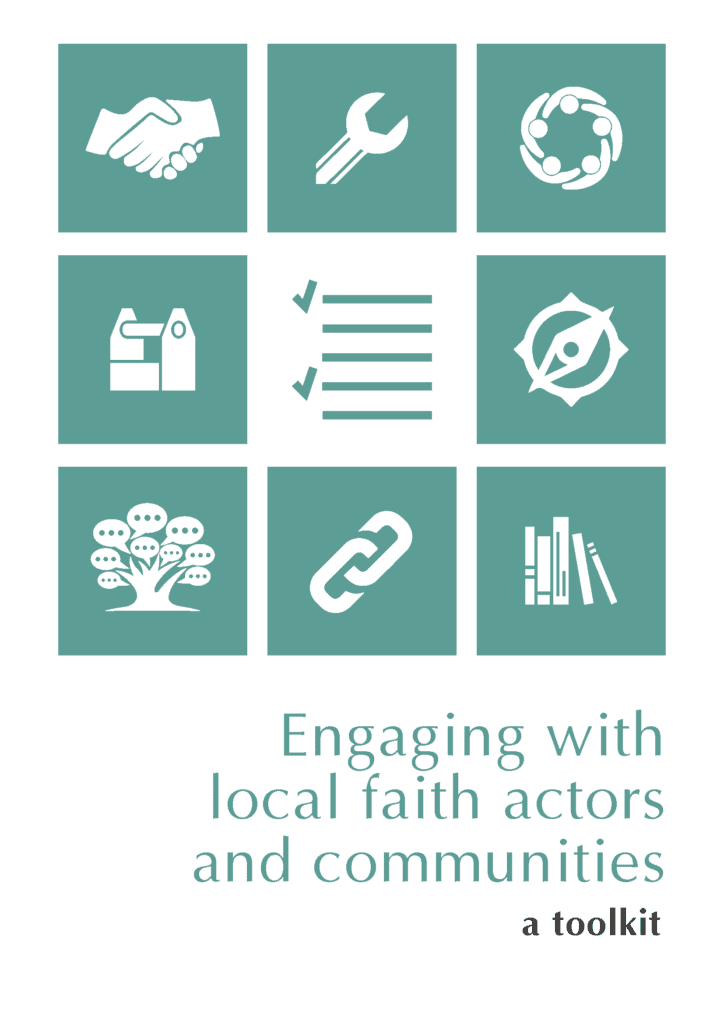Overview
This toolkit, jointly published by ACT Alliance EU, Caritas Europa, EU-CORD, and Islamic Relief Worldwide, serves as a practical guide for EU decision-makers to facilitate the involvement of local religious leaders and faith communities in pandemic response and post-recovery efforts. Recognising the significant role of faith and belief systems in shaping customs, practices, and well-being frameworks in many regions where the EU operates, the toolkit emphasises the importance of understanding religious dynamics to address social cohesion or inequality drivers effectively.
Faith communities building resilience
Faith communities are frontline responders during emergencies, maintaining a presence before, during, and after crises. Religious leaders are part of international networks and have good local connections. This allows them to establish relationships built on trust, facilitating multi-dimensional interventions. The toolkit underscores the meaningful contributions of religious leaders, including women and youth, in building resilience, providing psychosocial and spiritual support, promoting inclusion, countering stigma, and adapting traditional practices to mitigate risks.
In the realm of inclusion and protection, religious leaders and faith communities play pivotal roles. The toolkit advocates for systematic inclusion of religious actors in humanitarian and development programs. It recommends involving religious leaders in decision-making processes, and ensuring flexible time frames for engagements.
Role of religious leaders in combatting gender-based violence
Addressing the need for “religious literacy,” the toolkit emphasises understanding existing structures, relationships, knowledge, expectations, and assumptions when engaging with faith communities and partners.
The toolkit provides guidance on identifying opportunities amid obstacles such as: gender inequalities, political complexities, and unequal power dynamics. It highlights the importance of engaging religious leaders in combating gender-based violence during the Covid-19 pandemic. It also suggests a dialogue-based approach for addressing alleged proselytisation mixed with aid.
Defending civil society
The toolkit emphasises the positive role of religious actors in defending civil society space during the pandemic response. It cautions against potential obstacles arising from partisan affiliations. Furthermore, it encourages EU staff and partners to respect faith leaders’ decisions to reject collaboration. In conflict contexts, the toolkit urges recognition of the often overlooked influence of religious actors and recommends mapping their roles in specific conflicts, engaging with positive actions of religious leaders in peacebuilding, and ensuring representation of various religious voices.
